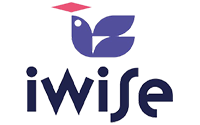The iWISE Olympiad Computer Science Category is designed to attract participants with a diversified skillset, to encourage creativity and to reinforce good project development practices. We aim to encourage students to use technology creatively to express themselves, to design new inventions, and to solve problems by submitting their projects in the following subcategories: Data management, Data Sciences, Networking and Software Systems. This category will help students focus on the use of coding language to develop information processes or programs to demonstrate, analyse, or control a process/solution.
Based on the iWISE Olympiad Computer Science Category description, here are the objectives and evaluation criteria.
Objectives for the Computer Science Category
– Encourage innovative problem-solving: Motivate students to identify real-world problems and design novel software or systems solutions.
– Stimulate creative expression: Provide a platform for students to use technology as a medium for creative expression, whether through original software, unique data visualizations, or other digital inventions.
– Promote invention: Challenge students to design and implement new technologies and applications rather than simply replicating existing ones.
– Instill systematic development: Encourage students to follow a systematic development lifecycle, from project planning and design to implementation, testing, and maintenance.
– Cultivate best practices: Reinforce industry-standard development practices, including the use of version control, clear documentation, and clean, efficient code.
– Enhance technical skill diversity: Provide opportunities for students to build a diverse technical skill set by working within and across the subcategories of Data Management, Data Sciences, Networking, and Software Systems.
– Showcase talent: Offer a public platform for students to exhibit their technical and creative abilities to peers, educators, and industry experts.
– Encourage technical communication: Help students develop the ability to effectively present their work, including its purpose, procedure, and conclusions, to both technical and non-technical audiences.
– Facilitate knowledge exchange: Create opportunities for students to exchange ideas and learn from one another’s projects and approaches to problem-solving.
Young scientists can explore the Computer Science Category through various subcategories:
Data Management
Data Sciences
Networking
Software Systems
- Click on the Registration Tab
- Select one of the Virtual Finals
- Fill in your details.
- Fill in your selected category details on the corresponding form.
- Select your available time for the Judging process.
- Submit your zoom judging session.
- Proceed to payment.
- Complete your submission.
Evaluation criteria for the Computer Science Category
Judging will be based on a combination of the project’s technical aspects, creativity, and the effectiveness of its presentation.
– Functionality and effectiveness: How well does the project work? Does it solve the intended problem effectively and efficiently? Judges will assess whether the product achieves its stated objectives.
– Technical complexity and proficiency: Does the project demonstrate a high level of technical skill appropriate for the student’s age and experience? This includes the complexity of the algorithms, data structures, and the overall system design.
– Code quality and documentation: Is the code well-written, clear, and logically structured? Is the project well-documented, explaining the design choices and how the system works? Good documentation should support reproducibility and further development.
– Evaluation of solution: For projects in Data Sciences, judges will evaluate the thoroughness of the data analysis and whether the conclusions drawn are adequately supported by the data. For all projects, students must demonstrate an understanding of their project’s limitations.
– Originality of concept: How unique is the project’s idea or its approach to solving a problem? Judges will distinguish between simply applying a standard method and truly innovative thinking.
– Creative application of technology: Does the student use technology in an imaginative way to express an idea, create a new invention, or solve a problem? This can include a novel interface, a new way to interact with data, or an unconventional system architecture.
– Originality in methodology: For Data Sciences, this includes whether the project offers a unique perspective or draws creative insights from a common dataset. For Networking and Software Systems, this means a novel implementation or solution design.
– Project presentation: Is the project explained clearly, both in written materials and during the interview? The presentation should logically convey the project’s purpose, the development process, and the outcomes.
– Demonstration: Can the student confidently and effectively demonstrate the project’s functionality and key features? The demonstration should not be a memorized speech but reflect a deep understanding of the work.
– Audience engagement: Does the student show enthusiasm and respond thoughtfully to questions from judges? The ability to explain complex technical concepts simply is highly valued.
– Data Management: Efficiency and integrity of data storage and retrieval systems.
– Data Sciences: Rigor of data analysis, validity of conclusions, and ethical considerations.
– Networking: Security, performance, and scalability of network implementations.
– Software Systems: Robustness, usability, and maintainability of the software product.
Requirements for Virtual Finals:
Participants must out together the following documents for their STEM Projects:
Project Abstract
Project Portfolio
PowerPoint Presentation
No theme for this category.
Group submission is up to 3 participants
Requirements for Global Finals:
Participants must put together the following documents for their STEM Projects:
Project Abstract
Project Research Plan
Project Portfolio
Poster
Prototype (If Applicable)
PowerPoint Presentation (Optional)
No theme for this category
Group submission is up to 3 participants.
